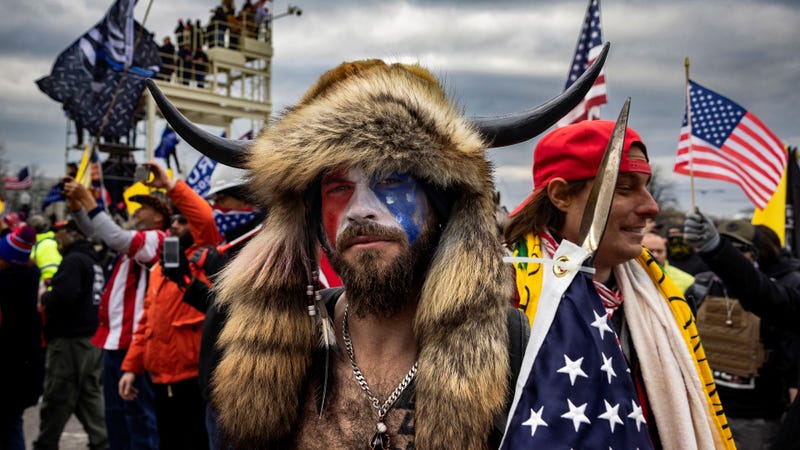
Support among military veterans for extremist groups and ideals appears similar to or less than levels seen among the U.S. public in general, despite fears that it could be higher.
That’s according to a new RAND Corporation report released this week that surveyed a nationally representative group of 989 military veterans. Researchers found that support for extremist groups such as the Proud Boys and Antifa was generally lower than rates derived from previous representative surveys of the general U.S. population.
“We found no evidence to support the notion that the veteran community, as a whole, exhibits higher rates of support for violent extremist groups or extremist beliefs than the American public,” said Todd C. Helmus, the study's lead author and a senior behavioral scientist at RAND, a nonprofit research organization. “However, our findings do suggest work still may be needed to make sure veterans are not susceptible to being recruited by those with extremist ideologies.”
The survey findings did not come as a surprise to Marine veteran Joe Plenzer and military spouse Ellen Gustafson of We The Veterans, a nonprofit that recruits vets to serve as election workers.
"There's a lot of people in America who are looking at our military and veteran community as you know, 'woke'," Gustafson said. "And then you could easily take away that our military is full of white supremacists. As a military spouse who lives in this community, I know that not to be true."
"I think when people put their hand in the air and swear to support and defend the constitution, that oath doesn't end when we leave the Department of Defense," Plenzeer said. "That's something that the overwhelming majority of us carry with us till the time, you know, we step off this planet."
Survey participants were asked about extremist groups such as Antifa, the Proud Boys and white supremacist groups, as well as their attitudes toward QAnon ideology, support for political violence and the Great Replacement theory.
Concern that the veteran community is at increased risk of radicalization to violent extremism has increased since reports that a significant proportion of those who attacked the U.S. Capitol on Jan. 6, 2021, were currently or had been affiliated with the U.S. military.
Assessing support among veterans for extremist beliefs, researchers found results that were more mixed. Support for QAnon was lower than the public at large, while support for political violence and the Great Replacement theory appeared similar to that of the general population.
The survey also found that Marine Corps veterans expressed the highest support for extremist groups and beliefs among the different branches of the military.
Several factors are assumed to underpin veteran radicalization and why some extremist groups have sought to target both active-duty and military veterans, according to researchers. Veterans are considered significant additions to violent extremist groups, given their past weapon training and their logistic and leadership skills. They also lend a sense of legitimacy to militant groups that can further aid recruitment.
In the survey, fewer veterans expressed support for Antifa than the overall U.S. population (5.5 percent versus 10 percent), and veterans expressed much lower support for white supremacists than the U.S. population overall (0.7 percent versus 7 percent). Veterans also expressed relatively less support for the Proud Boys (4.2 percent versus 9 percent) and the QAnon conspiracy theory (13.5 percent versus 17 percent). About 5 percent of the participants expressed support for black nationalist groups.
Researchers say it could be that veterans who support such groups may be more inclined to actually join them or participate in their activities than nonveteran counterparts.
“It seems clear that veterans bring a unique and dangerous set of capabilities to extremist groups,” said Ryan Andrew Brown, coauthor of the study and a RAND senior behavioral scientist. “So even a smaller prevalence rate of extremist attitudes among veterans could still represent an outsized security threat to the United States.”
Researchers also suggested that military and veteran service organizations should continue to explore what drives some active-duty personnel and veterans to endorse extremist beliefs and join extremist causes.
Julia LeDoux can be reached at Julia@connectingvets.com.



